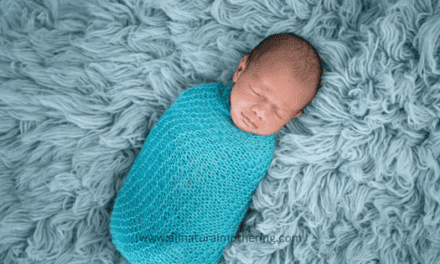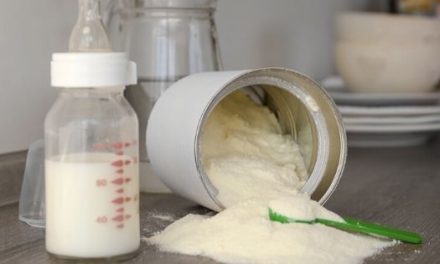If you hang out in cloth diaper communities, you must have heard the term “stripping” thrown all around like a magic fix to all your cloth diaper issues.
Stripping cloth diapers is not mandatory. If you have a good wash routine, stripping might not be needed at all. However, not everyone figures out the wash routine that works for them right off the bat. And then, there are other instances where stripping can come in handy.
What is Stripping?
Stripping cloth diapers is not as scary as they sound. Stripping, aka deep cleaning cloth diapers is to get rid of any mineral or ammonia build up and reset your cloth diaper absorbency.
There is some notion in the cloth diaper groups to think stripping as a part of regular cloth diaper maintenance. I would strongly disagree with that.
I have been cloth diapering for more than three years and using the same set of cloth diapers on two kids.I only had to strip twice or thrice, and I had good reasons to do so.
If you are find yourself having to strip diapers regularly, I can bet there the underlying issue is in the way you are washing your diapers. It may be your water hardness or using more (or less) detergent.
A good wash routine will and should take care of mineral or ammonia build up. When that’s not the case, you should get to the bottom of your washing method and fix it instead of stripping diapers regularly.
When do you strip cloth diapers?
1. Ammonia Build Up:
Cloth diapers are the dirtiest kind of laundry you can deal with. I mean we are talking pee and poop here. They need to be washed in a heavy cycle with enough detergent. When you don’t use enough detergent, your diapers won’t come out clean.
Ammonia can build up on cloth diaper fabrics when there is not enough detergent and/or not enough water to rinse out the residue. Ammonia build-up can be a slow process. So you may think your diapers are doing fine until one day you are struck with a barnyard smell as soon as your baby pees.
2. Hard water:
Hard water contains salts of minerals ( like calcium, magnesium, and iron). Hard water makes it harder for the detergent to dissolve with the water to create a solution. As a result, a detergent residue settles on your diaper. Which over time, will wear the diapers, make them look unclean and less absorbent.
3. Diaper Creams:
Care should be taken to use cloth safe diaper creams when using cloth diapers. Some diaper creams are petroleum based that will leave a residue on your diapers causing your diapers to repel urine and leak.
When you need to use stronger petroleum based diaper creams, you can either switch to disposable diapers or use a liner to protect your diapers.
4. Used Diapers:
Whenever you buy used or preloved diapers, I always recommend stripping and bleaching the diapers. You don’t know how the previous owner washed the diapers, so it is safer to sanitize the diapers before they go on your baby’s bum.
How NOT to Strip Cloth Diapers:
Now that you know when to strip cloth diapers let’s move forward and discuss how to strip diapers ( the right way!). I’m going to stress on doing it the right way because not everything you hear on the internet is correct, some hardly make any sense.
People sometimes forget that cloth diapers are part of household laundry and come up with surreal ideas when dealing with cloth diaper problems.
The Dawn Soap (Original) :
The dawn soap has a special place in cloth diaper advice groups. Supposedly, adding dawn soap to your washing machine along with your diapers will be an end to all your cloth diaper problems. Ahh, you might as well say goodbye to your washer.
Seriously, this boggles me. Why would you put dishwasher detergent in a washing machine to wash… laundry?
I researched for the ‘science’ behind this and could not find a satisfactory answer to recommend this method of stripping. Let me tell you why I don’t recommend this method of stripping:
- Using Dawn soap in your washing machine can void your washing machine warranty and cloth diaper warranty
- It can cause suds lock( yes! it’s a real thing). Dish detergents foam a lot compared to laundry detergents. When you put a dish liquid in a machine, it can foam excessively, causing suds lock.
- Dish liquids are stronger for your baby’s sensitive skin.
Some groups are upfront about the cons of using Dawn in the washer, and therefore, they recommend to spot clean the diaper with a toothbrush, using little of Dawn in a bathtub or a sink. Then rinse, rinse, rinse to get rid of all the suds before you wash it in a washer.
It is touted that Dawn does a great job in removing greasy substances from the diapers. Diaper cream residue or fatty foods that your baby eats can all leave an oily residue in the diaper causing the diaper to repel ( if not washed properly)
While I agree that there can be greasy residue in the diaper, I just don’t think that Dawn is the way to do it.
Boiling Diapers :
Did you that some diapers /covers are made of PUL – polyurethane laminate, which can break in boiling water?
Well, if you think that you will only boil the inserts, well I hate to tell you even the fabrics in the inserts are prone to wear when cooked in water. The result is a wrecked PUL cover and a less absorbent insert that will leak on you. So just say no to boiling diapers.
Running Diapers in a Dishwasher:
This one tops it all. The worst cloth diaper recommendation award goes to whoever came up with this. Seriously don’t! Dishwashers are not designed to wash clothes.
If you are wondering how to strip diaper without a washing machine, use your bathtub or kitchen sink.
How to Strip Cloth Diapers ( The Right Way!) :
There are many striping agents available in the market today. You can find them Amazon, or a local cloth diaper store. RLR and Grovia Mighty Bubbles do a great job with removing ammonia or mineral build up. I have tried both with success.
1.RLR:
What is RLR?
RLR is a propertiary blend of sodium carbonate. Sodium carbonate, in simple language, is also known as washing soda. Although, RLR is not any washing soda; It has a higher concentration of washing soda.
How to Use RLR on Cloth Diapers?
Step 1: Start with Clean Diapers. Run your diapers in a wash cycle before you start the RLR soak. They don’t have to be dried, just clean.
Step 2: Fill Hot water: If you have a washing machine where you can pause the machine and soak, then you can use RLR in the washing machine. Otherwise, you can use the bathtub for soaking.
Step 3: Add RLR. One packet of RLR can be used to strip 30 diapers. Use more if you want to strip more diapers.
Step 4: Add Cloth Diapers. You only have to strip absorbent materials like cloth diaper inserts and pocket covers, Covers with only PUL lining need not be stripped.
Step 5: Once everything is added to the machine, run a short cycle, agitate to mix everything together. If you are doing the soak in a bathtub, stir the mixture with a spatula.
Step 6: Soak for atleast 6 hours or leave it overnight.
Step 7: Rinse, rinse, rinse until you see no suds in the water. If using a bathtub, you can transfer the diapers to the washing machine for rinsing.
Step 8 : Dry and use the diapers.
2.Grovia Mighty Bubbles:
Similar to RLR, Grovia Mighty Bubbles is a laundry treatment to remove build up and odor from cloth diapers. It contains Sodium carbonate, Sodium percarbonate, Sodium polyitaconate, Surfactants, Enzymes, Oxygen bleach activator, Sodium silicate.
It is not a detergent in itself, so you need to start with clean diapers before using MB.
How to use Grovia Might Bubbles?
You can use Grovia MB directly in the washing machine ( front or top) as you don’t have to soak the diapers.
Step 1: Add clean diapers to your washing machine and fill with hot water.
Step 2: Add 1 MB pod to strip 24 diapers ( cover + inserts = a diaper) . If you are going to strip more than 24, then I would more than one load using the same steps.
Step 3: Run a heavy duty wash cycle.
Step 4: Do another warm rise.
Step 5: Dry and use diapers. If the diapers don’t feel clean after the strip, repeat the process again (upto 3 times).
















When you say 30 diapers, is that 30 liners or pocket covers, or is that counting the cover and insert as one “diaper”?
Hello, I use 30 diapers meaning 30 diaper covers and 30 inserts.
Are RLR and MB safe for high efficiency washers?